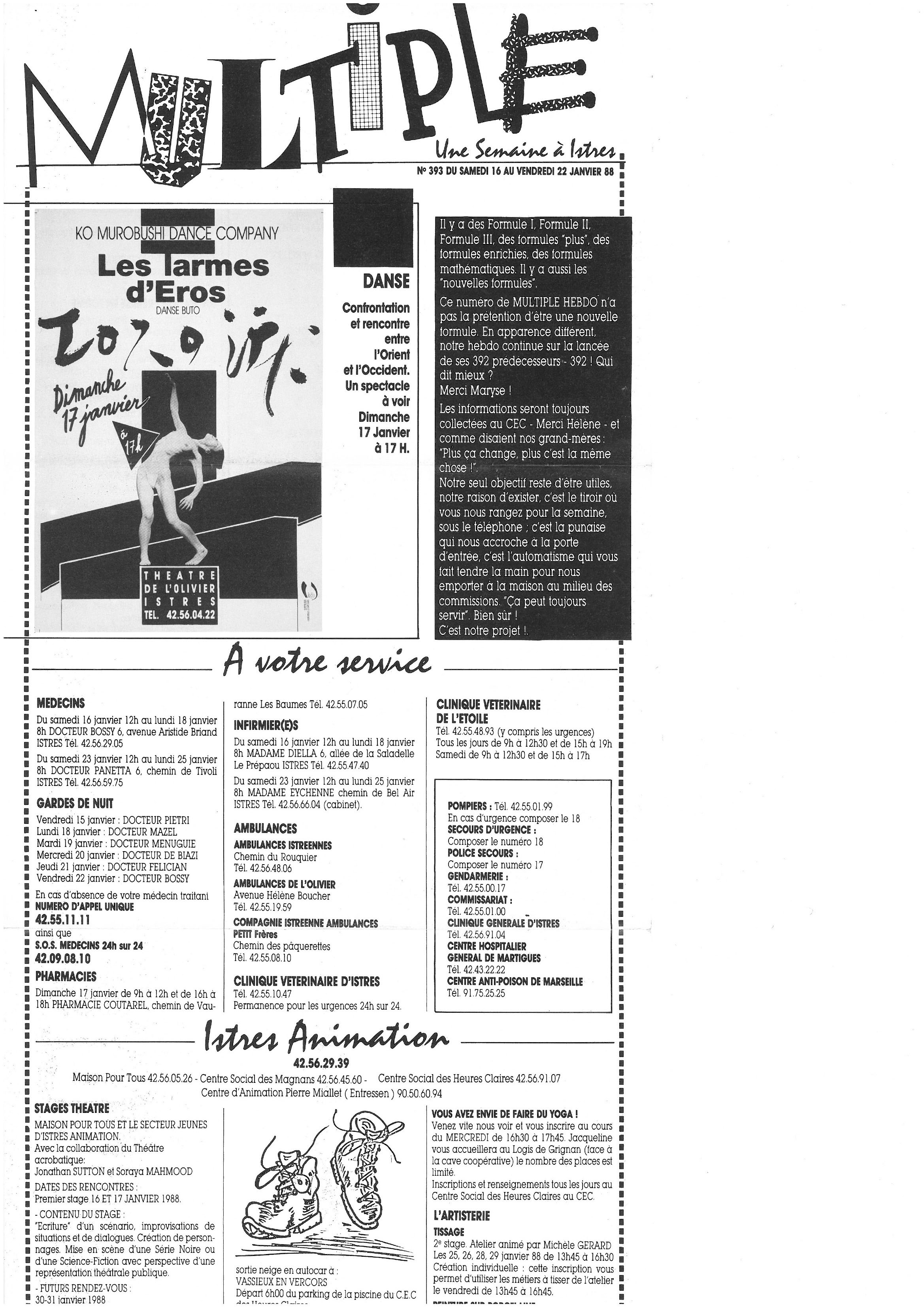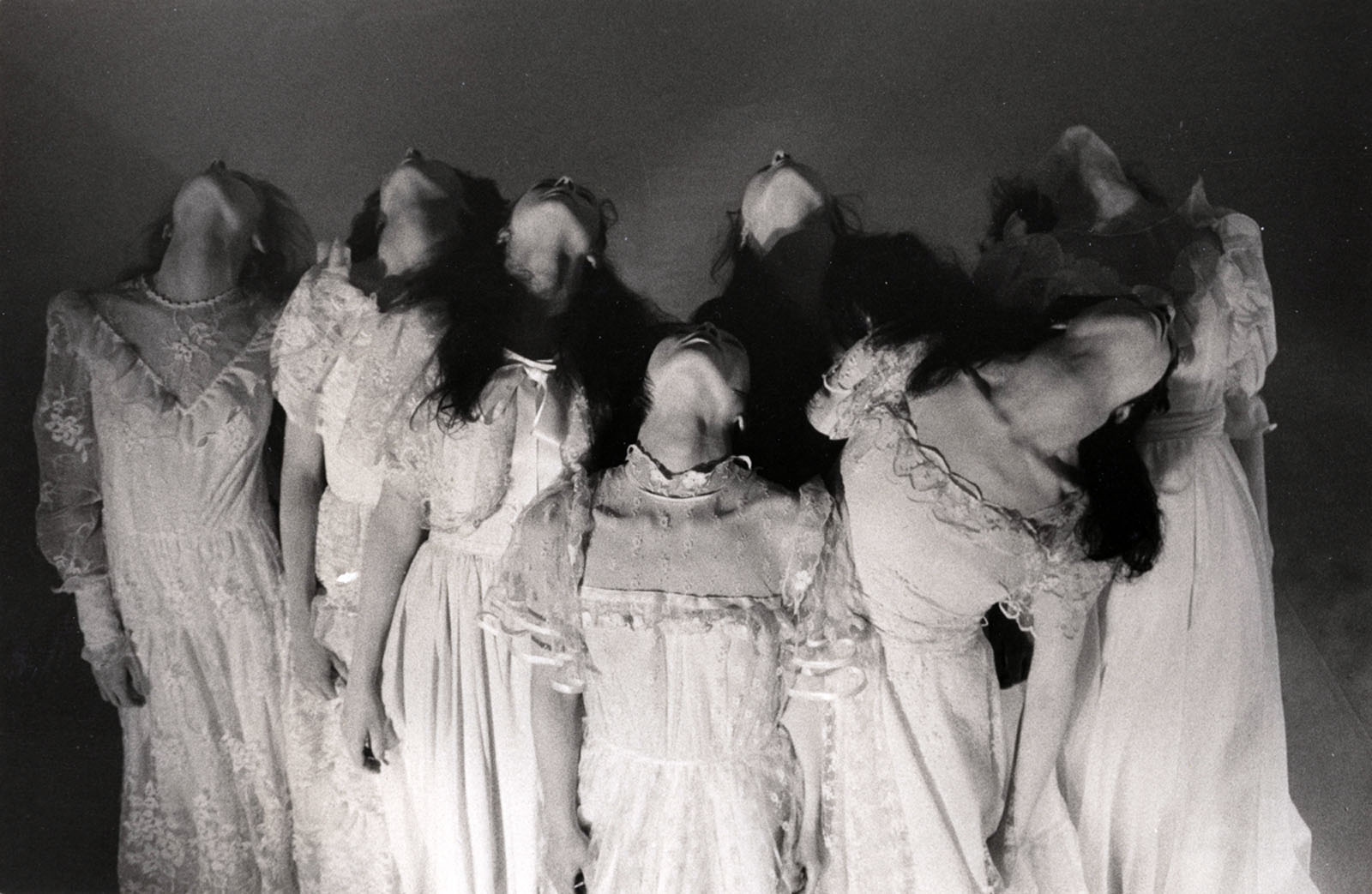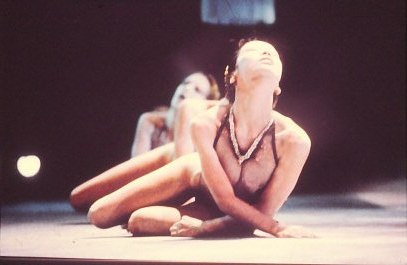


1986
from Program
We are hungy / in the rich / Searching new vertigos / In the hungry body / We find without limitation
Between orient and occident / belonging to neither / To become things between you and me / From the frontier, I will describe a new frontier / The forces that produce this vision are Eros
Giving birth, every moment in pain and pleasure / With new meetings and separation / We dance this distance between ourselves / In sacrifice and excess consummation of our forces.
Ko Murobushi
da “Les larmes d’EROS”
di George Bataille
… Il se révèle et néanmoins se voile. De l’instant même où il se révèle, il se voile… Mais dans cette profondeur fermée s’affirme un accord paradoxal, accord d’autant plus lourd qu’il s’avoue dans cette obscurité inaccessible. Cet accord essentiel et paradoxal est celui de la mort et de l’érotisme…
… Seul moyen d’approcher la vérité de l’érotisme : le tremblement…
… Divine, c’est-à-dire, ici, refusant la règle de la raison…
… De ce fait, leur valeur érotique est en quelque sorte poignante. Elle ne s’affirmait pas dans un monde ouvert à la facilité. Il s’agit de leur vacillantes, et même, à la rigueur fiévreuses…
… Nous savons encore qu’à l’époque où nous pères s’égaraient dans les profondeurs de ce puits, il leur fallait, voulant y parvenir à tout prix, s’y faire descendre à l’aide de cordes…
… L’objet du rire, et l’objet des larmes se rapportent toujours à quelque sorte de violence, interrompant le cours régulier, le cours habituel des choses….
… Il est banal d’affirmer que la religion condamne l’érotisme, alors qu’essentiellement, dans ses origines, celui-ci était associé à la vie religieuse…
«Gli occidentali possono danzare il Buto?»
di Ko Murobushi (English version)
“Can the Occidentals dance the Butoh?”
I have often been asked this question during my performances in Europe. If, on one hand, I deeply believe in the universality of the Butoh as a plastic expression of the body, on the other hand undeniably all body are conditioned by the cultural framework in which they live. Moreover, the Butoh was born in a definite place and at a special moment in Japanese history.
Therefore, it is always difficult for me to dissociate those two paradoxical aspects of the Butoh.
Am I able to answer this question today?
Yes and no, because I can answer neither with words nor with logical reasoning. The answer can be identified by viewing the performance itself which I have created for a new troupe of western dancers.
The aim of such an experience is not only to answer the initial question because this idea of a cultural fusion, dear to my heart, goes beyond the interrogative itself.
It must be realized that the choreography in this instance does not reflect the application of my ideas onto the ballet dancer’s body, in as much as I am trying, above all, to release the purity of the spirit imprisoned in the body.
Working with western dancers has set me the task of finding a new way to enter into contact with bodies which undergo different conditioning from mine.
Remarking on the concept of “sacrifice” as defined by Bataille, Maurice Blanchot writes in his “Théorie de la Religion”: “To sacrifice is not to kill, but yield and offer.
To bring oneself to Acefalo, is to let go and offer oneself: to give oneself completely to abandonment without limits”.
This cultural fusion, which I believe is inseparable from this vision of sacrifice and yielding to which I add the sensation of ecstasy. All the images of “Larmes d’Eros” are drenched in the Purity of the abandonment which allows us to find something unreal.
These images dance a silent work.
My next performance will, therefore, be a work of pure silence.

